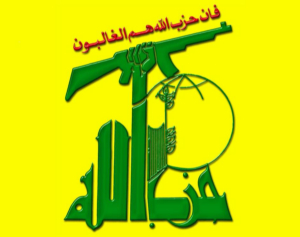UPDATES
Weakened Hezbollah Shifts Blame Towards Israel
August 1, 2011 | Daniel Meyerowitz-Katz

Last week marked the fifth anniversary of the Second Lebanon war, fought between Israel and Lebanese terror group Hezbollah. Since the conflict concluded, Hezbollah has been systematically consolidating power in Lebanon and amassing arms for the next round of violence. However, there has not been a shot fired from Southern Lebanon into Israel for which Hezbollah has taken credit. This is in stark contrast to the situation before the incursion, when Hezbollah would periodically fire rockets and mortars into Israeli territory in order to raise tensions.
To mark the anniversary, Israeli academics Abraham Bell and Gerald Steinberg have written a piece in Ynet about a study that they are conducting on different NGO responses to the 2006 conflict, which has some rather disconcerting findings.
We are now completing a multi-year study of all the HRW and Amnesty allegations regarding the 2006 Lebanon war, and the results so far are shocking. In our systematic and detailed research, supported by the Israel Science Foundation, we found major contradictions as well as numerous unsupported charges, double standards and false or invented “evidence.”
In some reports, such as on incidents in the Shiite towns of Srifa and Qana – Hezbollah strongholds from which numerous rocket attacks were launched – the NGOs published wildly inconsistent civilian casualty claims within a few days of each other. Errors were overwhelmingly in one direction; almost without fail, errors consisted of exaggerated Lebanese casualties or unfounded accusations against Israel.
In the article, which is well worth reading, Bell and Steinberg give a number of concrete examples where NGOs made unfounded claims of Israeli “atrocities”, with no verifiable evidence to support them, and then later backpedalled when they were exposed as false. However, despite their reports being wrong or completely lacking in evidence, these groups continued to condemn Israel while overlooking the crimes being committed by Hezbollah. For instance, on one incident which occured at Qana in which civilians were killed, they note the following:
The catch-22 in which the NGOs placed Israel is illustrated by their “proof” that Israel knew that civilians were in the building, near the Hezbollah targets. On August 3, 2006, Amnesty International “proved” that an Israeli investigation showing that the Israeli military had not known of the civilians was a “whitewash” because “survivors of the attack … stated that they had been in the building for some two weeks and that their presence must have been known to Israeli forces.” On the same day, August 3, 2006, Human Rights Watch “proved” that the Israeli claim that the “civilians were not seen because they had been hiding in the building for some days” could not be believed because a “survivor” of the attack stated that the civilians only entered the building “around 6 pm on July 29,” i.e., only seven hours before the bombing.
Five years after the Second Lebanon War, a war whose results Nasrallah considers both a “veritable miracle” and a “divine victory” that God bestowed on his party, Hizbullah has currently reached one of its lowest points. Nasrallah is confronting a genuine crisis that poses a significant challenge to Hizbullah’s status in Lebanon.
Two major reasons account for this strategic reversal:
- The endangered survival of the Assad regime in Syria.
- The international tribunal in The Hague has demanded the extradition of four Hizbullah members suspected of murdering Prime Minister Hariri. Heading the group is Mustafa Badr al-Din, who replaced Imad Mughniyeh as head of the military and security wing and is part of the Hizbullah leadership.
… Damascus functions as the primary bridge between Iran and Hizbullah in terms of all military and other assistance arriving from Tehran. This comes on top of the direct transfer of rocket and missile weaponry from the Syrian army’s arms depots to Hizbullah’s fighting units. Hizbullah has adopted a clear-cut stand in support of Bashar Assad, and therefore Hizbullah flags are being burned in the streets of Syria together with Nasrallah’s portrait.
… In light of all this, it would appear that Nasrallah is looking for a new pretext to confront Israel in order to make it clear that jihad – the movement’s raison d’etre – is alive and well and that Hizbullah constitutes the spearhead of the struggle against Israel. The pretext this time is the gas fields that Israel has discovered and is developing in the framework of its maritime economic zone.
In the long term, Hezbollah’s weakened position will certainly be beneficial to the Lebanese, as well as Israel and even Syria. That said, the group will probably not allow itself to “go down without a fight”, so to speak. While Hezbollah could never seriously threaten Israel’s survival in an armed conflict, any conflict that it does start would undoubtedly lead to tragic loss of life on both sides.
Daniel Meyerowitz-Katz
Tags: Hezbollah, International Security





